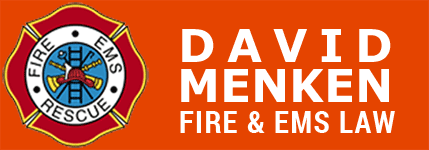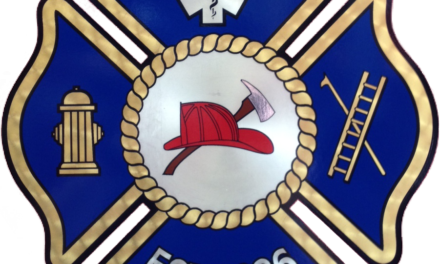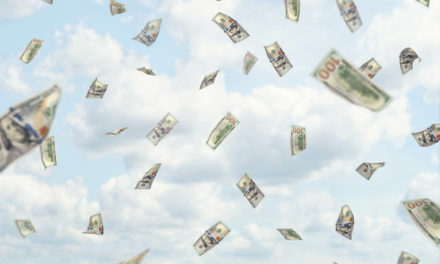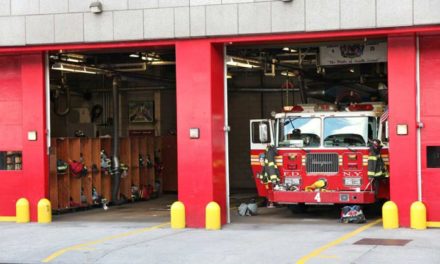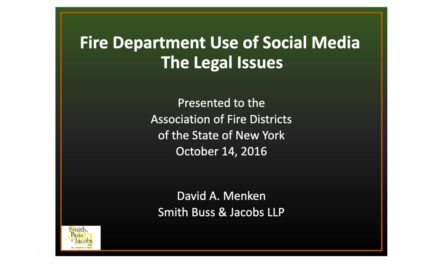 This may not be a very popular proposal, but perhaps it’s time for alcohol to be banned from the Fire House. It may be unpopular, but it might be a good idea from a purely legal perspective. Each department has to decide for itself how far to go.
This may not be a very popular proposal, but perhaps it’s time for alcohol to be banned from the Fire House. It may be unpopular, but it might be a good idea from a purely legal perspective. Each department has to decide for itself how far to go.
It’s a really simple fact pattern. There’s a get-together at the Fire House, after a call, after a meeting or on a weekend. You innocently and naively opened the beer locker, and gave your friend a few beers. Your friend couldn’t control his drinking, got drunk, got into an accident. Who is liable?
In New York, under the dram shop [1] rules, you are potentially liable, civilly and criminally, even though you didn’t mean any harm and you did not reasonably foresee a problem.
The General Obligations Law §11-101, providing for civil liability, states in part that “any person who shall be injured in person, property, means of support, or otherwise by any intoxicated person … shall have a right of action against any person who shall, by unlawful selling to or unlawfully assisting in procuring liquor for such intoxicated person, have caused or contributed to such intoxication; and in any such action such person shall have a right to recover actual and exemplary damages.”
That means that the person who was injured, or whose property was destroyed, by the person you gave the beer to can sue you for actual and exemplary damages. What are exemplary damages? Anyone’s guess how high they can go.
The Alcohol Beverage Control Act §65(1), providing for criminal liability, states that it is a misdemeanor for a person to “sell, deliver or give away or cause or permit or procure to be sold, delivered or given away any alcoholic beverages to (1) any person, actually or apparently, under the age of twenty-one years; or (3) any visibly intoxicated person; (3) any habitual drunkard known to be such to the person authorized to dispense any alcoholic beverages.”
So, if you give a person liquor, or you permit liquor to be provided even if you don’t do the giving, to an underage person, a visually intoxicated person, or a person you know is a habitual drunk, you could be guilty of a misdemeanor.
Of lesser importance, but still relevant, is that the Volunteer Firefighters Benefit Law prohibits benefits from being paid to firefighters hurt in the line of duty when the injury is caused by the firefighter’s intoxication. Section 6 provides that “if a volunteer fireman dies from the effects of injury in line of duty, or if such a fireman shall be injured in line of duty, benefits shall be paid and provided pursuant to this chapter, except that there shall be no liability for such benefits when the injury has been solely occasioned by intoxication of the volunteer fireman while acting in line of duty….”
Liability has been extended to the “employer,” or the responsible party who could have controlled the event. That means, most likely, the fire district, the fire department and/or the municipality. The New York State Attorney General concluded that a village could be held responsible for a fire department’s Dram Shop Act violations occurring during a fundraising event, though not during a social activity. According to the AG’s opinion, 1990-64, “under traditional concepts of respondeat superior, an employer is liable for injuries to another person caused by employee misconduct committed within the scope of employment. An act is deemed to have occurred during the scope of employment if it was in furtherance of duties owed to an employer and the latter could control the activities or if it was a natural incident of employment …. The doctrine of vicarious liability applies to municipalities for firefighter misconduct.” (citations omitted). The fact that the firefighter is an unpaid volunteer does not affect his status as an employee of the entity that controls him.
No matter the official position of our volunteer fire departments, it appears from anecdotal evidence that the practice of drinking alcohol at the fire house is less pervasive than it was years ago. This mirrors the policies of paid fire departments, where firefighters have work schedules and are expected to refrain from drinking while on duty or at the fire house.
For example, the New York City Fire Department Probationary Firefighters Manual, Article 4, prohibits the “use, positive presence, possession, sale, transport or delivery of alcohol or related paraphernalia (e.g. beer taps, beer kegs) while on-duty; or while in uniform; or while in any Department premises, property or vehicle(s).” It also prohibits “any use of alcohol that may elicit a positive test result while on-duty.” It is hard to get more specific than that: no alcohol at the fire house, or on fire department property or in fire department vehicles, and no alcohol that could be detected in a test while on duty.
The FDNY also holds the officer in charge accountable for compliance by his or her subordinates. Failure of the officer to enforce the policy “will result in appropriate disciplinary action and will be reflected in the officer’s performance evaluation.” (Article 5.3).
It is not necessary to be legally intoxicated to break the drunk driving laws in New York State. A firefighter who has had a beer or two may not be “under the influence” but he might be “ability impaired.” Under the Vehicle and Traffic Law §1992(a), “no person shall operate a motor vehicle while the person’s ability is impaired by the consumption of alcohol.” And under §1992(5) of that law, no personal shall operate a commercial motor vehicle – that is, also a fire engine – which such person has a blood alcohol level of .04, which is half the limit for driving a private car. It isn’t hard to get to .04. Could be three cans of beer or 3 small glasses of wine.
A comprehensive, conservative, but safe alcohol policy is as simple as this:
- No member shall consume, offer to others or make visible any alcoholic beverage at the Fire House, on the Fire Ground or in any Fire Department apparatus.
- The officer in charge when alcoholic beverages are present has the obligation to take appropriate action to remove the member from operation and commence disciplinary action.
A member suspected of impairment by use of alcohol should be required to submit to a test and until the test results are established should be prohibited from participating in any firematic activities. If the test results show the presence of alcohol in such an amount as to cause impairment the member should be provided with rehabilitation services to ensure that he or she can overcome his or her drinking problem.
We live in a litigious society. We also live in a time when the fire house is more “professional” and less “social,” not necessarily the place to go to hang out and drink a bunch of beers. For those reasons, the decision makers in fire districts and departments should seriously consider banning alcohol, just as they have banned tobacco. And perhaps it will have the same result: people usually get over it. On second thought, maybe they wouldn’t get over it at some fire houses I have been to.
[1] The term comes from shops which sold liquor by the “dram,” a small unit of uneven volume.
